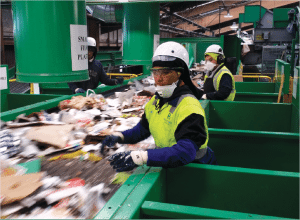 In this section in July, we featured a MRF that hangs over the waters of New York Harbor: Sims Municipal Recycling’s Sunset Park facility in Brooklyn, N.Y.
In this section in July, we featured a MRF that hangs over the waters of New York Harbor: Sims Municipal Recycling’s Sunset Park facility in Brooklyn, N.Y.

Resource Recycling keeps you on top of critical industry trends and brings unparalleled analysis of the evolving materials stream, market turbulence, policy trends and more.
Sign up for our free weekly e-newsletters to receive the latest news directly.
 In this section in July, we featured a MRF that hangs over the waters of New York Harbor: Sims Municipal Recycling’s Sunset Park facility in Brooklyn, N.Y.
In this section in July, we featured a MRF that hangs over the waters of New York Harbor: Sims Municipal Recycling’s Sunset Park facility in Brooklyn, N.Y.
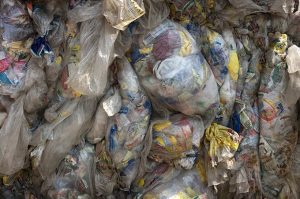 One report indicates that buyers in China are desperately seeking domestic sources of recovered paper. Meanwhile, low-value plastics are flooding the European market, but processors there have limited ability to handle those loads.
One report indicates that buyers in China are desperately seeking domestic sources of recovered paper. Meanwhile, low-value plastics are flooding the European market, but processors there have limited ability to handle those loads.
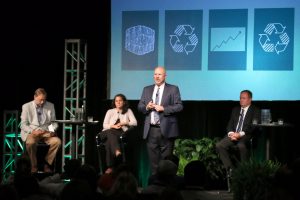
DJ VanDeusen of WestRock speaks at the Resource Recycling Conference.
Some of the key recovered commodities generated by materials recovery facilities have been fetching high prices lately, including aluminum and fibers. But China’s import restrictions have introduced an element of the unknown in the market.
 California lawmakers have sent the governor a bill mandating that carpet stewards achieve a 24 percent recycling rate and discouraging the use of incineration. Meanwhile, carpet makers are sticking with their beleaguered stewardship group, instead of submitting alternative collection and recycling plans.
California lawmakers have sent the governor a bill mandating that carpet stewards achieve a 24 percent recycling rate and discouraging the use of incineration. Meanwhile, carpet makers are sticking with their beleaguered stewardship group, instead of submitting alternative collection and recycling plans.
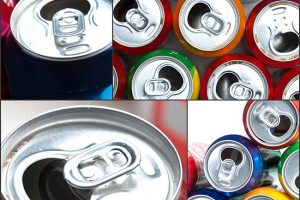 Real Alloy is restarting an idled aluminum recycling plant in Kentucky because of increased customer demand and a new contract.
Real Alloy is restarting an idled aluminum recycling plant in Kentucky because of increased customer demand and a new contract.
 Pennsylvania’s recycling stakeholders lobby to protect tens of millions of dollars in recycling money from being diverted, and a New Jersey company is fined after the death of an employee.
Pennsylvania’s recycling stakeholders lobby to protect tens of millions of dollars in recycling money from being diverted, and a New Jersey company is fined after the death of an employee.
 A barcode scanning innovation tells consumers the details on product recyclability, and a Canadian organization explains how the proposed materials ban in China could affect the recycling industry in one province.
A barcode scanning innovation tells consumers the details on product recyclability, and a Canadian organization explains how the proposed materials ban in China could affect the recycling industry in one province.
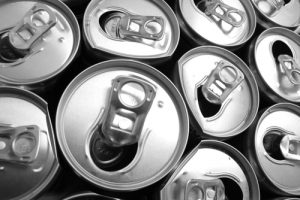 The world’s largest retailer underreported the number of containers it distributed over a three-year period in California, leading to $7.2 million in unpaid deposits to the state. The balance was paid in full late last year after it was revealed during an audit.
The world’s largest retailer underreported the number of containers it distributed over a three-year period in California, leading to $7.2 million in unpaid deposits to the state. The balance was paid in full late last year after it was revealed during an audit.
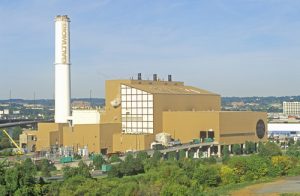 Anti-incineration activists have released a report criticizing efforts to burn waste in the U.S., calling them misguided attempts to achieve sustainability.
Anti-incineration activists have released a report criticizing efforts to burn waste in the U.S., calling them misguided attempts to achieve sustainability.
 The Massachusetts Institute of Technology found that 40 percent of municipalities included in a research set have programs aimed at diversion of food material. And those cities are not all in regions considered hotbeds of environmentalism.
The Massachusetts Institute of Technology found that 40 percent of municipalities included in a research set have programs aimed at diversion of food material. And those cities are not all in regions considered hotbeds of environmentalism.
